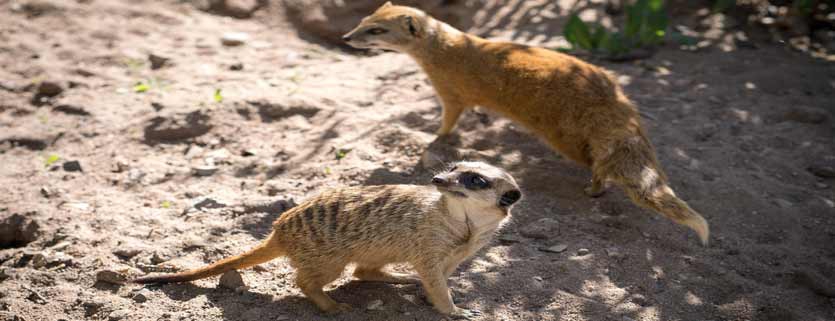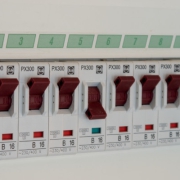Why the African LNG projects boom fades (will be different)
Until about one year ago, every time I went to Sub-Saharan Africa, I entered a bustling world, awash with cash from black goo. Oil made the new fortunes of many of those countries and gave them a fillip like never before.
One case in point was Angola with its brand new glitzy Luanda skyline and its flocks of expensive SUV cars clogging streets and traffic to a halt.
Just about one year later, things could not be more different. Oil has gone to decadal lows and it seems that there is no bottom in sight. Money from oil has all but dried up and the spending boom – that has made some African cities the most expensive places to live on earth – has all but stopped in its tracks.
Much of the spending was debt-financed and this easy money was thrown at oil-producing countries on the belief that the party is going to last forever. Many of them simply did not want to believe, that there might one day be a giant reversal in fortunes pushing those debtors towards financial default quicker than cheese melts in red hot steel pans.
Just 18 months ago, the picture was strikingly different as it was Africa that got the limelight in terms of big discoveries and the attention of the big boys in the international oil and gas business. African leaders were given red-carpet treatment just about everywhere and the show was sweetened by copious dollops of cash on the heels.
This royal treatment also made African leaders aware of their relative power at the negotiating table with the foreign folks wanting their oil. So they became ever more demanding when giving out concessions and other commercial arrangements. The queue was long so if anyone found the demands of African governments excessive, the next applicant popped out like a Pez.
Life was great. Not anymore.
The relatively high price of oil that still held sway at that time put a thick cloak over many antics foreign oil and gas companies had to endure in many African countries. They had put up with it, as they wanted a piece of the pie so desperately that they just swallowed hard and took pain relievers whenever it got ugly. The incentive to stay the distance was very strong. Money has a strong palliative effect on all sorts of pain it seems.
But now, things are very different. The cloak is gone, taking the pain-relieving effect away with it. Now, with vastly lesser profits (sometimes even losses) to be had from every single oil well, those active in Africa re-evaluate and they feel the full sting of the pain they always encountered.
Now, with much less money on the table, the pain that those international partners are ready to swallow from African governments is finite (at least perceptibly so) and suddenly their interest in further engagement evaporates.
But those African governments have not built their fortunes on those who have already sunk their cash into those countries but they concluded that the party would never end and they could go on extracting more and more from an endless crowd of investors forever.
This is why much of the current glitz is built on the assumption that future revenue would be coming forward as it did over the last couple of years and hence those countries still went on a borrowing binge despite bumper earnings.
In the end, who wants to wait for the goodies if he can have them now and pay later? This all smacks a bit of the subprime bubbles except that it was African governments and not Western banks that inflated the balloons this time.
African governments have been slow to react to the new reality on the ground. While investors are now much less willing to go with their every whim, they are still pushing legislation through national parliaments that will make investments in oil and gas even more punitive than before. They should by now do the exact opposite and get the “hugs and kisses” strategy out of the backpack.
Judging by slow African standards, most countries will have driven even the most brass-balled investors away by the time when they do wake up. They are doing the wrong thing at the wrong time and it will kill the goose that lays golden eggs.
Production in most African countries has been down for 2015 and it’s going to be lower still in 2016. This means fewer bucks for every barrel and fewer barrels to sell to add insult to injury. And to top it all, all the fresh money that potentially could come in is being driven away at astronomic rates.
Those dependent on the oil buck will suffer the most. Nigeria and Angola already have problems propping up their currencies and have slashed budgets. That’s not going to bode well in countries that buy stability with cash.
Below USD 50, lots of projects in Africa just don’t make sense anymore and it’s very often because of the heavy government takes. If the countries would lower their royalties, they would give many projects a second life and a real chance to get the go-ahead but that will be difficult to communicate to their constituencies and many might game on the hope that prices might soar soon again.
So if survival is what will be on everyone’s mind and droves of explorers leaving the continent, countries must find other ways how to monetize their “in the ground” assets. One such way would be to strengthen the local market, something that has never been very prominent in oil producers’ minds. The real cash was made with export and with foreigners paying a lot for the crude they cannot be blamed. But if African markets are all that’s left, things might be a little different.
Of course, getting local oil and gas entrepreneurs going on local resources won’t be the same as being courted by billion USD multinationals with deep pockets. Local entrepreneurs will be a lot more demanding of their governments and when they see that they are the new lifeline of their government, they will surely not be less vocal in their demands.
Besides, officials cannot count on their every move being cushioned in cash from those deep-pocket guys anymore. African explorers and project developers will ask for certainty and for officials to function without the facilitating grease. That’s a hard one for officials who never had to deal with someone telling them NO.
In the end, the situation has a silver lining. Local project developers have the best chance in a long time to get their projects realized as the blinding fireworks from the IOC are gone now. They have a real run on all the good their respective countries potentially might have to offer and officials will have to take them more seriously than ever as they might be all that’s left.
History shows that some hardship often is a good thing as it makes people refocus on what matters. Local markets mean more than billion-dollar export plants. That’s a lesson to learn in Africa and now is the time.


















Leave a Reply
Want to join the discussion?Feel free to contribute!